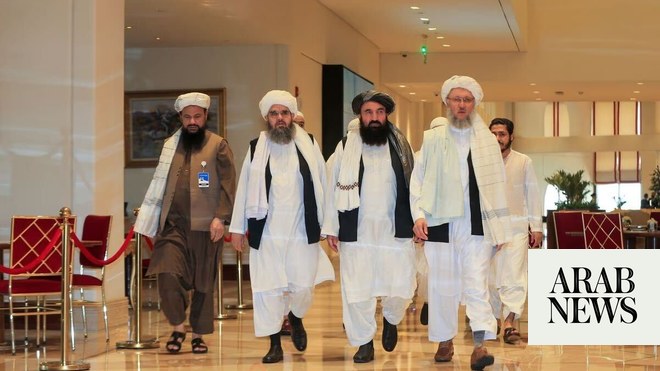
The fifth and most recent round of peace talks between the Taliban and the US were the longest and arguably most productive following the two-point agreement on the draft framework for withdrawal of US forces from Afghanistan and assurances that Afghan soil wouldn’t be used in the future to pose a threat to other nations.
Both sides had reported some understanding of the two primary points in the Doha talks in January, but this time they claimed progress on finalizing the draft framework to flesh out agreement details.
The marathon sessions continued for 16 days. In the end there was no major breakthrough, but there was also no breakdown in talks and that has largely been taken as a gauge of success, despite no joint statement or draft framework being made public.
But the progress of Taliban-US talks in the absence of the Afghan government has caused anxiety in Kabul. The national unity government led by President Ashraf Ghani finally lost its patience and a public criticism of US envoy Zalmay Khalilzad followed. It came from Ghani’s national security adviser, Hamdullah Mohib, who termed the Doha talks “surrender discussions” on a visit to the US and accused Khalilzad of keeping Kabul in the dark on any progress in the negotiations. He said the Afghan government was humiliated by making its delegation wait in a hotel lobby in Doha and went so far as to accuse Khalilzad of harboring ambitions to become the “viceroy of Afghanistan” by creating a weak caretaker government.
This is the second time that an Afghan government delegation reached the venue of Taliban-US talks in the hopes that the Taliban might relent and agree to meet. Earlier, the Afghan negotiating team waited on the Taliban in Abu Dhabi to no avail, and Khalilzad commented that officials from the UAE and Saudi Arabia who had attended the meeting alongside Pakistanis were frustrated at the Taliban’s refusal to meet the Afghan government’s delegation.
In Washington, Mohib argued that holding talks with the Taliban amounted to dishonoring the victims of 9/11 and the hundreds of US troops who have lost their lives fighting in Afghanistan. The US media reported that John Bolton, the national security adviser to President Donald Trump, was so upset by Mohib’s remarks that he refused to meet him.
The rare public spat between Afghan and US officials revealed some of the challenges in taking the peace process forward.
Rahimullah Yusufzai
Khalilzad, the Afghan-born American diplomat didn’t respond to Mohib’s accusations directly but, in an unusual move, the US State Department summoned Mohib to reject his attack on the “US approach to reconciliation.” The national security adviser was reminded that attacks on Khalilzad are attacks on the US State Department.
The rare public spat between Afghan and US officials revealed some of the challenges in taking the peace process forward. A US official cautioned that public criticism of Khalilzad only served to hinder their bilateral relationship and the peace process.
It is obvious that Mohib spoke for Ghani, who has been sending repeated warnings that no peace agreement can be made without his government’s participation. But the growing gulf between Ghani and Chief Executive Abdullah Abdullah, his junior partner in the unity government, has also become evident. The latter rejected Mohib’s remarks on the grounds they endangered the Afghan-US strategic relationship.
As was the case in the 2014 presidential election, Ghani and Abdullah are again being pitted against each other, along with other important presidential candidates, including former national security adviser Hanif Atmar, who is also critical of Ghani for creating hurdles in the peace process.
Though Khalilzad didn’t visit Kabul to brief the Afghan government after the Doha talks and instead went to the US, he was upbeat, as usual, about the prospects of peace. He did concede, however, that real peace was only possible with intra-Afghan dialogue and a comprehensive cease-fire.
For their part, the Taliban have refused to show flexibility on these two points and delayed a breakthrough. A proposal for forming a national negotiating team of the Afghan government and opposition for holding talks with the Taliban does hold promise, but details are still unconfirmed. So far, the only certainty is that there is no easy route forward, and the Afghans must start talking to each other for any real victory to be claimed in the negotiating process.
Rahimullah Yusufzai is a senior political and security analyst in Pakistan. He was the first to interview Taliban founder Mullah Mohammad Omar and twice interviewed Osama Bin Laden in 1998. Twitter: @rahimyusufzai1
Disclaimer: Views expressed by writers in this section are their own and do not necessarily reflect Arab News" point-of-view












